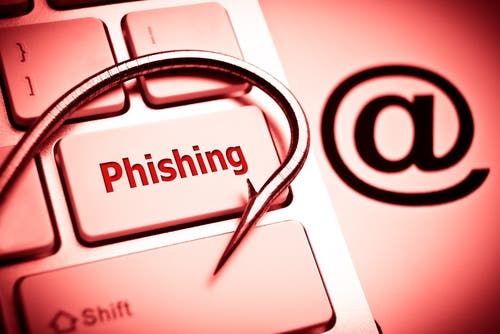Community Corner
Don't Fall for Email Scam; How to Find Sexual Predators Living in Your Neighborhood
If you've received an email warning of a child predator in your neighborhood, it's probably a phishing scam.

The Better Business Bureau is warning of a phishing scam that promises recipients of child sexual predators living in their areas. (Photo via Shutterstock)
______________________
Parents who want to protect their children from child predators may be falling victim to a cruel phishing scam intended to infect users computers with malware to search recipients’ computers for usernames, passwords and credit card numbers, the Better Business Bureau said.
Find out what's happening in Plymouth-Cantonwith free, real-time updates from Patch.
The BBB is warning parents not to open links in emails with subject lines like “Alert:There is a Child-Predator Living Near You!” The email claims to be a notification that “a registered-child-offender has just moved into your area,” the BBB said.
The link in the email promising additional information appears to take users to the BBB-accredited “Kids Live Safe” website that sells localized reports on sex offenders, but isn’t affiliated with the actual group. Rather, the link is bogus, and is an attempt to obtain personal identifying information, passwords and financial information.
Find out what's happening in Plymouth-Cantonwith free, real-time updates from Patch.
“Sending users to that website appears to be a way to lend credibility and distract from the actual scam,” the BBB said. “Clicking on the other link (the scam link) is enough to infect your machine with malware, even if you ultimately end up at a legitimate site.
“Once it’s on your machine, the malware will attempt to search for stored information such as usernames, passwords and credit card numbers.”
Parents interested in finding where registered sex offenders live may do so by consulting the FBI’s directory of state databases.
The BBB offers the following tips to avoid falling victim to this and other scams:
- If an email is unsolicited, consider not opening it: If you want information about an organization, search with your browser.
- Check out the “from” field: Scammers have the ability to mask email addresses, making the message appear legitimate source. Also, look out for email addresses that don’t match the brand used in the email message.
- Typos, bizarre phrasing and poor grammar are red flags: Scammers easily copy a brand logo or email format, but reveal their motive with awkward wording and improper grammar. In the predator scam, the awkward phrase is “local area ZIP code.”
- Hover over URLs to reveal their true destination: Typically, the hyperlinked text will say one thing, but the link will point somewhere else. Scammers either set up fake websites or hack into third-party sites and use them to host malware.
- The email claims to have information about you, but you never signed up for it: Scams often pretend to be personalized for you, but they are actually blast emails. If you never signed up for custom email alerts, you shouldn’t be receiving them.
More information is available on the BBB Scam Stopper.
Get more local news delivered straight to your inbox. Sign up for free Patch newsletters and alerts.